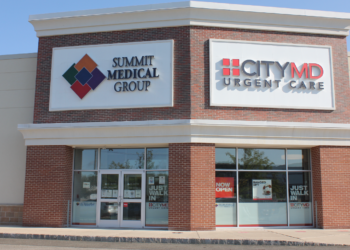A plan announced in early October calls for a massive public-private investment to bring lightning-fast gigabit internet speed to Westchester”™s four largest cities. But the plan has at least one town asking, what about us?
In a letter to the Westchester County Association, the nonprofit business group leading the initiative, Greenburgh Town Supervisor Paul J. Feiner said he was concerned the plan could hurt his town”™s ability to attract businesses, and added that he would work with the association to involve the municipality in the plan.
Feiner told the Business Journal that he”™s not against the idea, he just hopes to see it expand beyond the targeted cities of Yonkers, White Plains, New Rochelle and Mount Vernon.
“I think this is something that can really help Westchester attract new businesses and keep the ones it has,” Feiner said. “I”™m not trying to say don”™t do it. But I”™m saying if they are going to do it in the four cities, they should do it here as well.”
The population of Greenburgh is greater than three of the four cities, according to the latest numbers from the U.S. Census, at just over 90,000. Yonkers has 201,000 residents, New Rochelle 80,000, Mount Vernon 69,000 and White Plains 58,000.
The problem with having the higher speeds in neighboring cities, Feiner said, can be exemplified by looking at Central Avenue, or Route 100. Across a 10-mile stretch, the avenue runs from White Plains through Greenburgh and into Yonkers. Greenburgh”™s portion of the major commercial thoroughfare could find itself flanked by two cities that offer superior internet infrastructure.
“If White Plains has the gigabit and Yonkers has it too, but Greenburgh doesn”™t, why would anyone want to open up a store or have a business when they can go to the other communities where they can have much better internet access?” Feiner said.
Major businesses already in the town, such as Regeneron Pharmaceuticals Inc. and Acorda Therapeutics Inc., could also benefit from the increased internet speed, he said.
The gigabit plan was announced by the Westchester County Association on Oct. 6 at a press conference with the mayors of the four cities. The plan is estimated to cost about $750 million to bring internet about 20 times faster than basic broadband to the four cities. Major details such as funding and who will provide and maintain the service still have to be worked out. In the meantime, officials with the WCA have stressed how the increased internet speeds could provide a boost across multiple sectors of the county”™s economy. The plan would make the four cities the first in New York to offer a gigabit network.
In response to Feiner”™s concern, Joan McDonald, an adviser to the Westchester County Association, said it was never the intention for the plan to exclude any individual municipalities. The four cities were chosen in part, she said, because of their strategic location for the association”™s smart growth efforts. As real estate prices continue to climb in Manhattan, she said the WCA recognized that the four Westchester cities could take advantage and draw people and businesses priced out of New York City.
“We put our heads together and said look, each one of these four cities is a thirty minute train ride to Grand Central,” said McDonald, a former New York State Department of Transportation commissioner hired to advise the smart-growth initiatives. “And we don”™t want to be viewed as just a bedroom community; we want to be viewed as part of the metropolitan economy.”
To initiate the gigabit plan, the mayors from each of the four cities signed what the business association termed a Smart City Compact. While the gigabit plan is the most ambitious endeavor in the agreement, it isn”™t the only one.
“It”™s looking at best practices in transportation and in land use,” McDonald said. “So that”™s how we started and then it evolved into broadband.”
McDonald said the goal is for the project to be a win-win for all, and organizers will be reaching out to municipalities and organizations that have contacted the business group since the announcement.
“The ideal situation is gigabit for the whole county,” McDonald said. “We eliminate the digital divide, we are a place for businesses to locate when they are expanding, and absolutely the long-term goal is to hit as many locations as we can.”
The Westchester County Association announced on Oct. 24 that Blair Levin, a former adviser to President Barack Obama, would join the project. The organization still plans to add a project director to lead the gigabit initiatives and has begun evaluating different models, McDonald said.






















